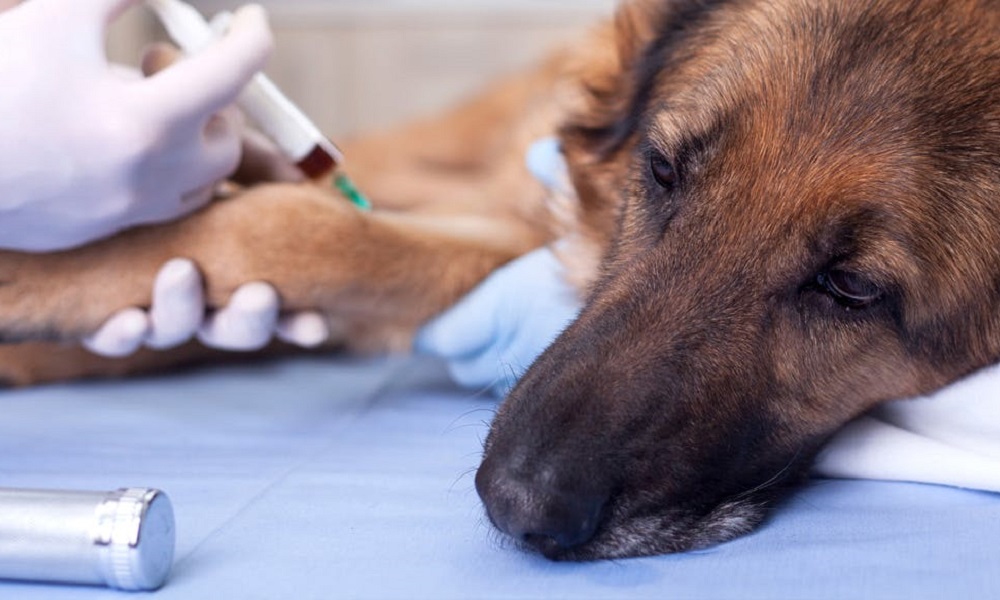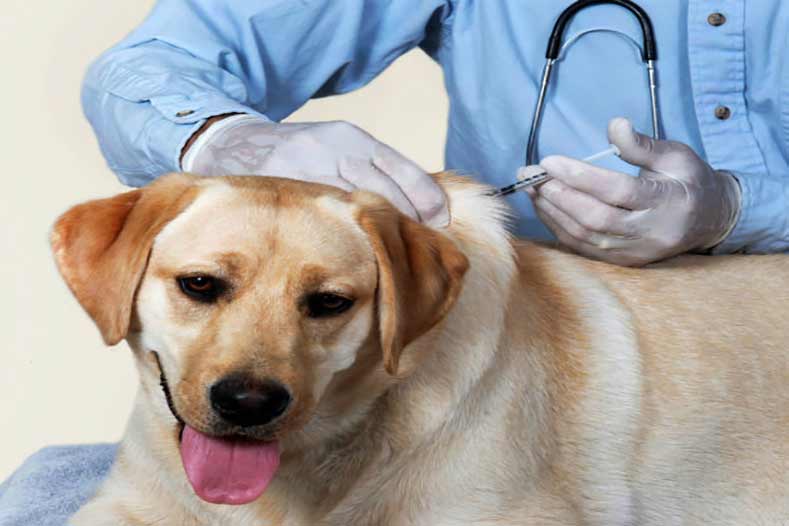Yes, vaccinated dogs can get kennel cough. However, the vaccination is not 100% effective and may only lessen the severity of the disease. Kennel cough is a highly contagious respiratory illness that affects dogs of all ages, breeds, and sizes.
The disease is spread through direct contact with other infected dogs or through contaminated surfaces (e.g., flooring, bowls, toys). Kennel cough can cause a severe hacking cough that persists for several weeks and can be accompanied by fever, a runny nose, and watery eyes. In some cases, kennel cough can lead to pneumonia and other serious health problems.
Treatment typically involves antibiotics and rest. Prevention is key, so make sure your dog is up-to-date on his vaccinations before taking him to any group settings (e.g., boarding kennels, doggy daycare).

The virus is spread through contact with contaminated surfaces or other infected animals. Symptoms of kennel cough include coughing, sneezing, and runny nose. If your dog shows any signs of illness, please contact your veterinarian immediately.
How Do They Treat Kennel Cough in Vaccinated Dogs?
There are a number of different ways to treat kennel cough in vaccinated dogs, depending on the severity of the infection. In mild cases, rest and plenty of fluids may be all that are needed. More severe cases may require antibiotics and/or cough suppressants. In very severe cases, hospitalization may be necessary.
How Long Does Kennel Cough Last If Vaccinated?
Kennel cough, or Bordetella, is a highly contagious respiratory disease that affects dogs. It is caused by a bacteria called Bordetella bronchiseptica and can be spread through contact with infected dogs, close proximity to infected dogs, or exposure to contaminated surfaces. Kennel cough is often seen in shelters, boarding kennels, doggy daycares, and other places where dogs congregate.
The good news is that kennel cough is usually not serious and most dogs recover within 2-3 weeks without any treatment. However, if your dog has kennel cough, it is important to keep them away from other Dogs until they are no longer infectious which is typically 10 days after the onset of symptoms. If you have multiple dogs in your household, it’s also important to isolate the sick Dog to prevent the spread of infection.
There are vaccines available for kennel cough and these are typically given as an intranasal vaccine (squirted into the nostrils) or an injectable vaccine. Some boarding facilities and shelters require proof of vaccination before allowing Dogs on the premises. The vaccine is not 100% effective but it does reduce the severity and duration of symptoms if your Dog becomes infected.
How Can I Tell If My Dog Has Kennel Cough?
If your dog is coughing, it could be a kennel cough. Kennel cough is a highly contagious respiratory infection that can affect dogs of all ages. The good news is that it is usually not serious and will clear up on its own within a few weeks.
However, if your dog is showing any other signs of illness, or the cough persists for more than a couple of weeks, you should take them to the vet for a check-up. There are a few things you can look for to see if your dog may have kennel cough. Firstly, they will likely have a dry, hacking cough that sounds somewhat like they are trying to clear their throat.
This may be accompanied by gagging or retching. Secondly, they may be wheezing or sneezing more than usual. And finally, they may have a runny nose or watery eyes.
If your dog has any of these symptoms, it’s best to play it safe and take them to the vet for an evaluation.
How Often Do Dogs Need Kennel Cough Vaccine?
Dogs need kennel cough vaccine every year.

Credit: www.akc.org
Conclusion
Yes, vaccinated dogs can get kennel cough. However, the vaccination is not 100% effective and may only reduce the severity of the symptoms if your dog does contract the disease. Kennel cough is a highly contagious respiratory infection that is spread through close contact with other infected dogs.
The disease can cause severe coughing and gagging, as well as fever, lethargy, and loss of appetite. If your dog shows any signs of kennel cough, it is important to take them to the vet for treatment.